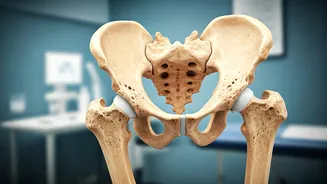Fatigue and Tiredness
Feeling consistently tired or fatigued can be a significant indicator of vitamin D deficiency. This fatigue isn't just a simple tiredness; it's a persistent
lack of energy that doesn't improve with rest. Vitamin D plays a crucial role in energy production within cells. When levels are low, the body struggles to generate sufficient energy, leading to constant exhaustion. This can affect daily activities, making it challenging to concentrate, exercise, or even get through the day. The impact on energy levels can often be subtle, initially, making it hard to pinpoint the cause, which is why recognizing this symptom is so crucial for identifying a potential vitamin D deficiency early on. This fatigue differs from a simple lack of sleep; it feels deeper, more pervasive, and often unexplained by lifestyle factors.
Mood and Depression
Vitamin D deficiency has a surprising link to mood disorders, including depression. Research has established a connection between low vitamin D levels and an increased risk of depressive symptoms. Vitamin D receptors are present in the brain regions associated with mood regulation. When vitamin D is insufficient, these areas may not function optimally, contributing to feelings of sadness, hopelessness, or loss of interest in activities. Seasonal Affective Disorder (SAD), a type of depression linked to seasonal changes and reduced sunlight exposure, is another example of this. The lack of sunlight, and thus, reduced vitamin D production, often correlates with the onset of SAD symptoms during winter months, highlighting the vital role of vitamin D in mental well-being and a healthier mood.
Bone and Back Pain
Bone pain and back pain are common symptoms of vitamin D deficiency because vitamin D is essential for calcium absorption, which is critical for bone health. Without sufficient vitamin D, the body struggles to absorb calcium from food, leading to a reduction in bone density and, therefore, bone pain and increasing the risk of fractures. This pain can manifest as a dull ache in the bones, particularly in the lower back, hips, and legs. Vitamin D deficiency weakens bones, making them more prone to pain and discomfort. This symptom should not be ignored, as it can be a sign of underlying bone health issues. Addressing the deficiency can alleviate pain and improve bone health, highlighting the importance of adequate vitamin D levels for skeletal well-being and a pain-free life.
Muscle Weakness and Aches
Vitamin D deficiency can also manifest as muscle weakness, aches, and cramps. This occurs because vitamin D receptors are present in muscle tissue, where it is involved in muscle function and strength. Low vitamin D levels can impair muscle strength and performance, contributing to a feeling of weakness or pain, especially after minimal exertion. People with vitamin D deficiency may find it harder to perform simple activities, experiencing fatigue during exercise or general physical tasks. Moreover, muscle cramps, spasms, and twitching are frequently associated with low vitamin D levels. Maintaining sufficient vitamin D levels is critical for muscle health, as it ensures proper muscle function and prevents aches and cramps, making it easier to perform everyday activities without discomfort.
Slow Healing and Pale Skin
Slow healing and pale or dull skin can be indicative of a vitamin D deficiency. Vitamin D plays an important role in the skin's defense and healing processes. It helps control inflammation and supports the production of compounds necessary for tissue repair. When vitamin D is deficient, the body's ability to heal wounds is reduced, leading to delayed healing. Additionally, vitamin D supports healthy skin cell growth and function. Therefore, a deficiency may result in pale or dull skin, as the skin may not regenerate efficiently. Recognizing these signs can help you understand the impact of vitamin D on skin health and recovery. It emphasizes the importance of maintaining adequate vitamin D levels to promote proper healing and a healthy complexion.
Frequent Illness and Infections
Vitamin D is essential for a robust immune system. It plays a pivotal role in the function of immune cells, helping the body defend against infections. A deficiency can weaken the immune system, making you more susceptible to illnesses such as colds, flu, and other infections. This leads to a higher frequency of sickness and prolonged recovery times. Those with low vitamin D levels often find themselves falling ill more frequently, experiencing symptoms of infection more intensely, and taking longer to recover from infections. Regular illness and infections can indicate an underlying vitamin D deficiency and it also highlights the critical link between vitamin D and immune function. Therefore, ensuring adequate vitamin D intake can support a strong immune system and reduce the frequency of illness.
Sleep Problems and Quality
Vitamin D also impacts sleep quality. Studies have shown a correlation between low vitamin D levels and sleep disturbances, including difficulty falling asleep, staying asleep, and overall poor sleep quality. Vitamin D influences the production of melatonin, a hormone that regulates sleep-wake cycles. Insufficient vitamin D may disrupt the production and release of melatonin, leading to sleep issues. People with a deficiency might experience restless nights, frequent awakenings, or a general feeling of not being well-rested, even after adequate sleep duration. Therefore, if you are struggling to get a good night's sleep, checking your vitamin D levels could be beneficial, potentially improving both your sleep and overall health.
Hair Loss and Thinning
Hair loss and thinning can be associated with vitamin D deficiency. Vitamin D is involved in the hair growth cycle. It helps stimulate new hair follicles, and when levels are low, the hair growth cycle is disrupted, leading to hair loss or thinning. This deficiency may be more noticeable in individuals who already have a predisposition to hair loss. Hair loss due to vitamin D deficiency can range from mild shedding to more significant thinning across the scalp. While hair loss can have many causes, a vitamin D deficiency should not be overlooked. Addressing the deficiency can support hair regrowth and improve hair health. If you are experiencing hair loss, it may be important to check vitamin D levels to determine if the deficiency is contributing to your hair loss.
Gastrointestinal Issues
Vitamin D deficiency can be linked to gastrointestinal issues. Vitamin D impacts the gut microbiome and plays a role in gut health. Vitamin D receptors exist in the gut, where it is involved in inflammation and the balance of gut bacteria. Deficiencies are often associated with gut-related problems, such as digestive discomfort, irritable bowel syndrome (IBS), or inflammatory bowel disease (IBD). This is because the gut needs vitamin D for proper function and nutrient absorption. People with low levels may experience symptoms like bloating, constipation, diarrhea, and abdominal pain. Improving vitamin D levels might alleviate these digestive symptoms, highlighting the need to check your vitamin D levels if you are experiencing persistent gastrointestinal issues.





















